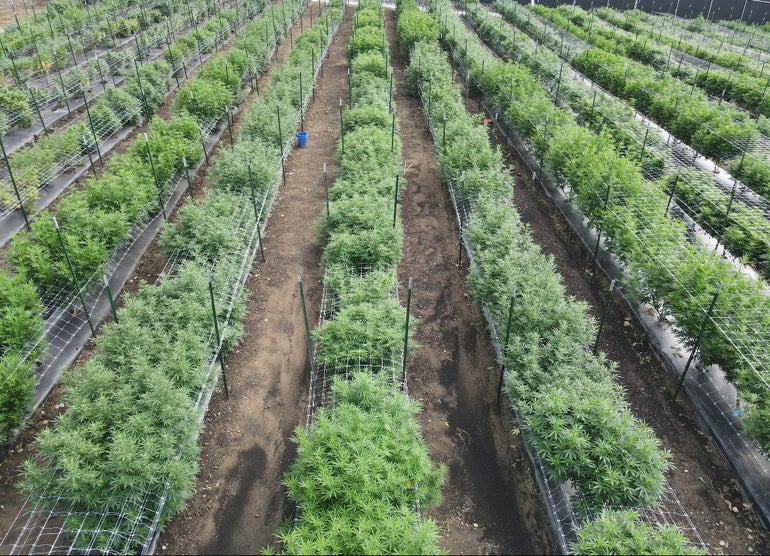Outdoor growers face a litany of hurdles to bring product to market, but the end result can be an environmentally friendlier option to indoor production.
Get Instant Access to This Article
Subscribe to Worcester Business Journal and get immediate access to all of our subscriber-only content and much more.
- Critical Central Massachusetts business news updated daily.
- Immediate access to all subscriber-only content on our website.
- Bi-weekly print or digital editions of our award-winning publication.
- Special bonus issues like the WBJ Book of Lists.
- Exclusive ticket prize draws for our in-person events.
Click here to purchase a paywall bypass link for this article.
Since cannabis was legalized for adult use in 2016, the plant has surpassed cranberries as Massachusetts' number one cash crop.
While some states, including Rhode Island, have decided to prohibit outdoor commercial cultivation of this newly legalized plant, Massachusetts went a different route, not only allowing outdoor marijuana cultivation, but taking steps to encourage the practice as a means of helping the environment and the farming industry.
Still, unlike most agricultural products, a majority of Central Massachusetts’ cannabis is grown indoors; just seven of the area’s 50 licensed adult use cultivations are outdoor farms, according to state data.
Outdoor growers face a litany of hurdles to bring product to market, but the end result can be an environmentally friendlier option to indoor production and can result in a more affordable and natural product, with some desirable characteristics, which are hard to find with weed grown indoors, according to outdoor enthusiasts.
Pot pollution
Enticed by the ability to control the environment and avoid the prying eyes of police helicopters, many of the nation’s illicit marijuana growers migrated indoors in the late 1980s, according to a 2021 academic paper by Nick Johnson, a Colorado-based historian.
Even after legalization, much of the country’s production has remained inside, particularly in states with colder climates and shorter growing seasons. Advancements in high-intensity artificial lighting effectively replaced sunlight.
Indoor cultivation comes at a cost for both businesses and the environment, requiring lighting to rival the brightness of the sun and high-capacity HVAC systems rotating air in facilities at three times the rate of commercial buildings.
Cannabis cultivation has an energy demand competing with data centers, according to a 2021 study published by Gina Warren, a University of Houston Law Center professor. The average cultivation can consume 50-200 times more electricity than an office building.
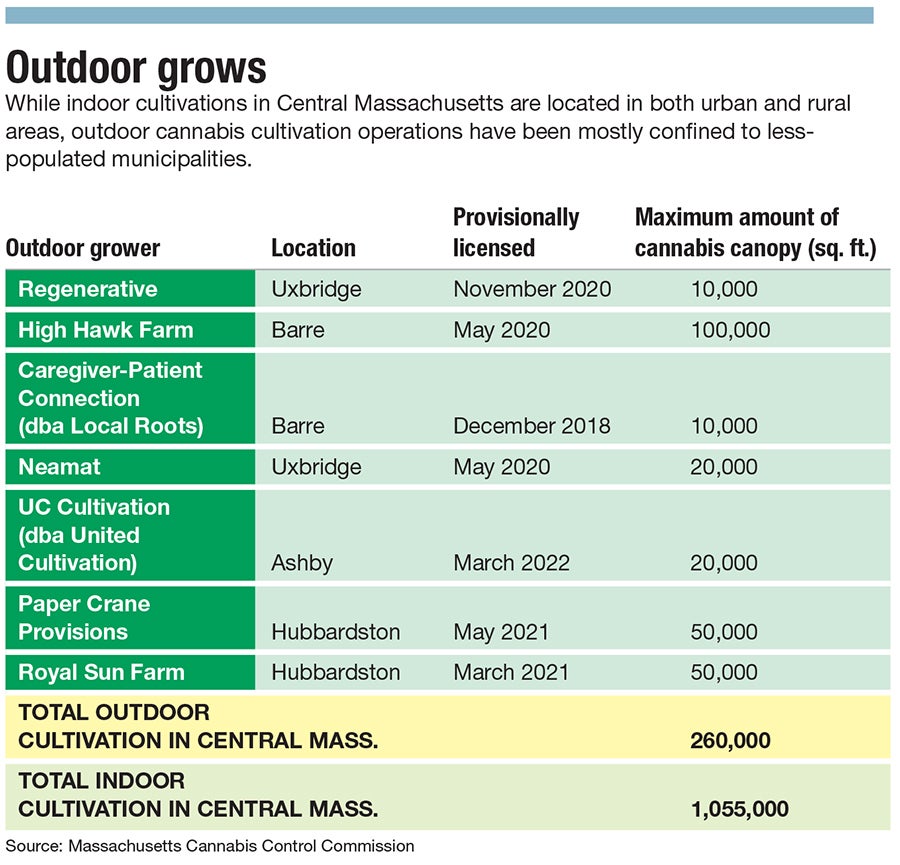
A 2012 study by a researcher at the Lawrence Berkeley National Laboratory found indoor cultivation was already responsible for emissions equaling 3 million cars. Since that study was published, 24 states have legalized cannabis for recreational use, with the national industry seeing a growth rate of over 200% between 2012 and 2023, according to figures from trade publication MJBizDaily.
Massachusetts regulators have taken notice of the issue. In July 2020, the state’s Cannabis Control Commission began enforcing energy efficiency standards and reporting requirements mandating consideration of renewable and efficient energy measures.
However, regulations offer the state’s 107 operational indoor cultivators opportunities to sidestep implementing efficiency measures, as long as growers explain their rationale for doing so.
More should be done to encourage outdoor cannabis cultivation throughout the country, said Micah Sherman, a Washington-based cannabis business owner and advocate for craft-style production.
“The environmental reasons are a pretty obvious benefit [to outdoor production],” Sherman said. “I don’t think that state policymakers should be encouraging people to invest in these large-scale indoor productions.”
Massachusetts has taken some steps to encourage outdoor cultivation, including slicing licensing fees in half and offering existing farmers of other crops guidance on adding cannabis to their repertoire. But existing state law presents challenges; lawmakers have expressly excluded the cultivation of marijuana from agricultural exemptions to municipal zoning rules.
Outdoor growers argue their product offers customers a more natural version.
“All our compost and nutrients are organic,” said Dan Warsowick, the CFO at Uxbridge-based Regenerative, an outdoor cultivation company. “The biggest thing is we’re growing cannabis the way it should be: From the sun, out in the elements.”
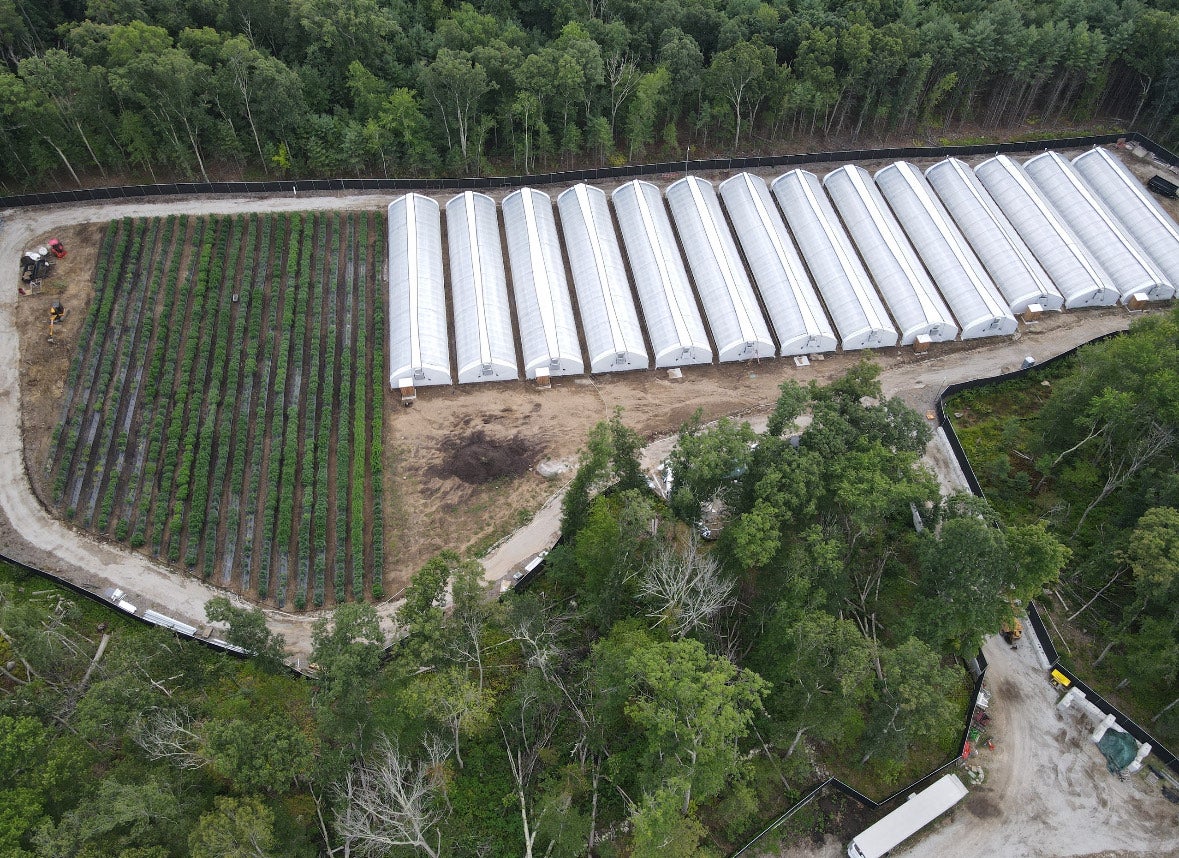
Wicked weather, onerous odors
Cannabis is a finicky and vulnerable plant. Adding New England’s weather to the mix elevates the difficulty, said David Macklin, a Winchester native who cut his teeth growing weed in California. He joined United Cultivation as its director of cultivation for its Ashby grow site.
“The biggest challenge is the weather,” Macklin said. “In 2022, we had an amazing season where it was perfectly dry. It almost mimicked California. Then last season, it was one of the wettest we had on record.”
Even brief flooding, frost, or extreme weather events can wreck a harvest. Insects present challenges.
“I noticed in Central Mass. there’s more moths and corn borers out here,” said Macklin. “A lot of nasty caterpillars, aphids, things of that nature.”
To fight back, United releases beneficial bugs to hunt or otherwise discourage problematic pests.
To have the best of indoor and outdoor, the company operates an enclosed greenhouse with a transparent roof for sunlight.
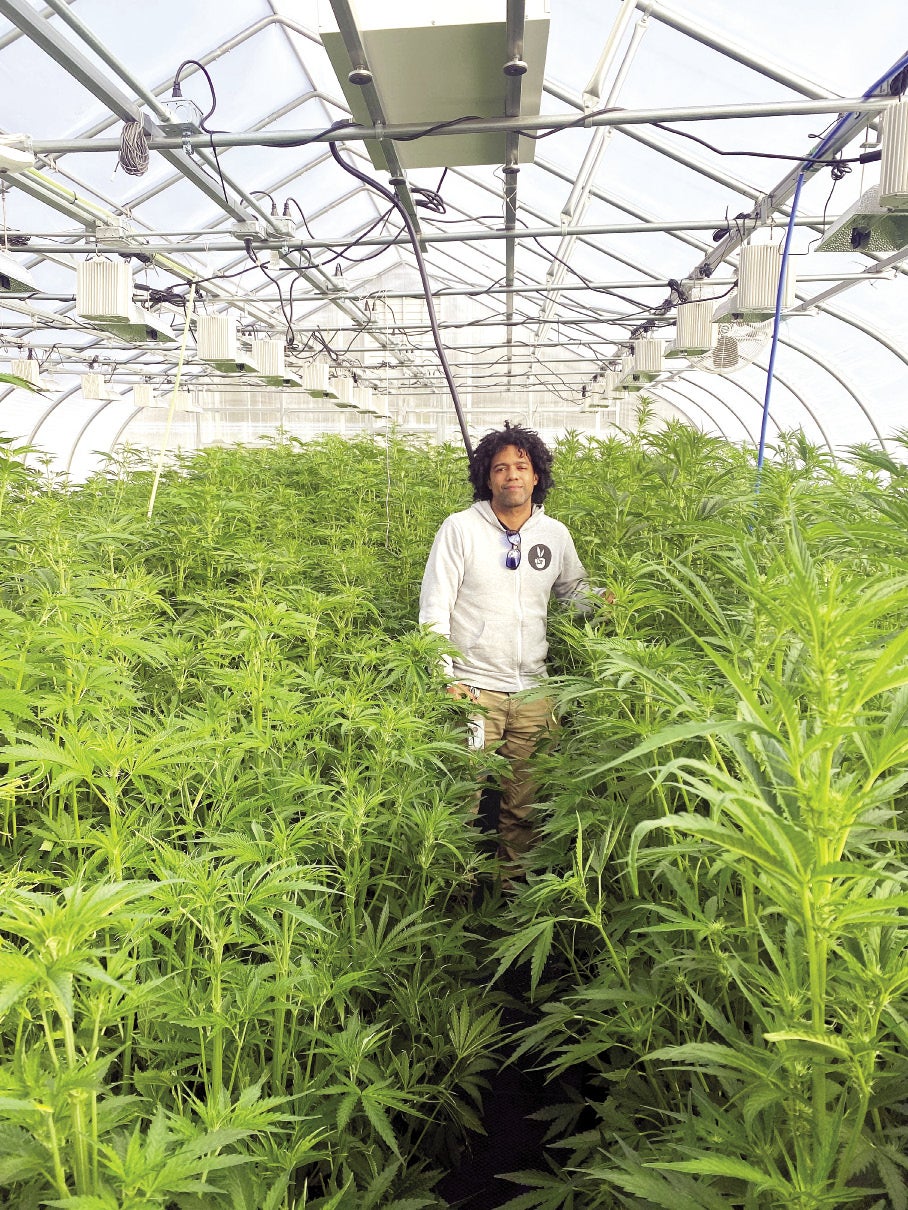
“If you gave someone the Pepsi Challenge and said ‘Here’s indoor, and here’s greenhouse product, which one’s which?’ They might have trouble deciphering between the two,” he said.
Taste aside, greenhouses can present high costs and other challenges, said Sherman.
“There’s a lot of people who know how to grow weed inside, and there’s not as many people who know how to build [greenhouses],” said Sherman. “They’re also substantial investments.”
In addition to weather, Outdoor growers have to consider the smell, as municipalities can have restrictions requiring the limitation of escaping odor.
Indoor cultivators can utilize technology to limit odors, but outdoors, growers are at the mercy of the winds.
Testing grower’s limits
Once outdoor growers deal with the gauntlets of weather, pests, and smell complaints, they face a final challenge before bringing product to market: passing mandated testing requirements.
Virtually all states with legal cannabis require it to be tested for pathogens, heavy metals, or other contaminants before being sold to consumers. Some jurisdictions only require testing for pathogens known to be harmful to humans, but Massachusetts requires tests for the total amount of microbes, a policy growers say is misguided.
“For outdoor flower, we fail pretty much no matter what,” said Macklin, “Natural things that are occurring in the air that settle on the plants are making the tests fail.”
To avoid all this, outdoor cultivators would like to see the state focus on specific bacteria or fungi known to be harmful to humans, such as e. coli and aspergillus.
Testing regulations often result in outdoor product being processed into concentrate, a hash-like substance that can either be vaporized, smoked, or used to make edible products. Processes used to create concentrates usually kill pathogens, allowing the final product to pass testing.
Other growers go nuclear, using irradiation machines in an attempt to kill potential pathogens otherwise causing testing failures. This treatment is approved by the U.S. Food and Drug Administration for food items, but little research has been done into the irradiation’s impact on cannabis quality and safety.
Some consumers are inherently turned off by the idea, but many outdoor growers aren’t as alarmed by the practice, said Warsowick.
Suehiko Ono, a grower with experience in Western Massachusetts and New York, helped create the Sungrown Cannabis Alliance, a Massachusetts-based association of outdoor cultivators. She said many conversations around irradiation are governed by fear rather than scientific fact.
“I've drafted regulatory changes proposals that have gained traction. I understand the subject,” Ono said. “From that standpoint, it is my belief that the radiation technologies do not cause further harm.”
Growers are in agreement whatever the test results or the methods to obtain them, transparency and accurate product labeling are key.
Cream of the crop
Outdoor product doesn’t alway look as appealing as indoor-grown product, but the lack of cost-intensive lights and HVAC systems can result in lower costs and material that’s good for biomass, an industry term for lesser-quality cannabis destined to be processed into edibles or other non-smokable products.
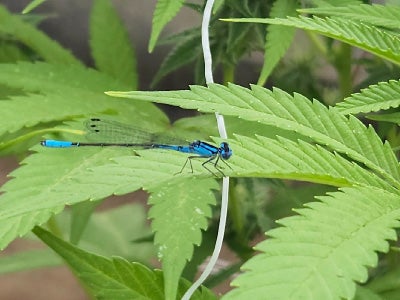
When outdoor flower can pass testing, supporters argue it can lead to a superior product, pointing to research suggesting the spectrum of the sun’s rays lead to increased levels of certain terpenes, substances which give cannabis strains their unique taste and effects.
“Besides significant environmental benefits, we also see higher production of terpenes in outdoor cannabis,” said Sherman. “Using sungrown material produces a better result in the extraction process.”
Outdoor flower can be ideal for pre-rolled joints.
“The pre-roll is the center of the bullseye, because then you don’t have to worry about bag appeal,” said Ono, using an industry term for flower appealing to the eye. “The terpene profile, the actual [consumer] experience … outdoor pre-rolls are the cream of the crop.”
Regenerative sells bulk material on the wholesale market to product manufacturers while selling its own line of branded products to dispensaries, a tactic proven successful.
“We’ve had a huge uptick as one of the most well-known outdoor cultivators in Massachusetts over the last six months,” said Avery Leveston, the business’ director of sales. “It’s really because we stand by our quality.”
